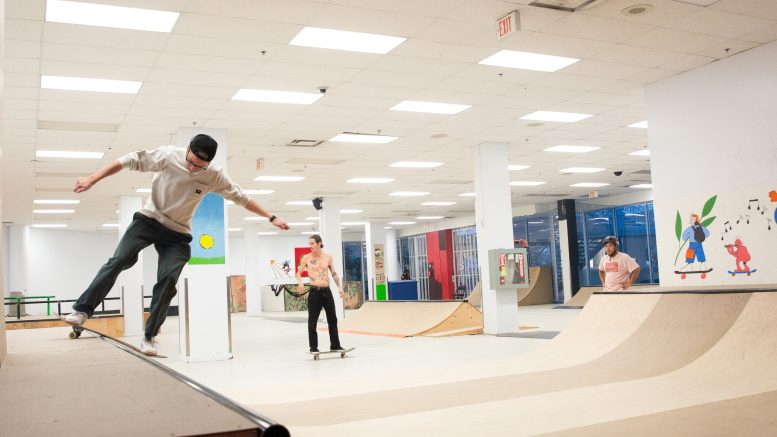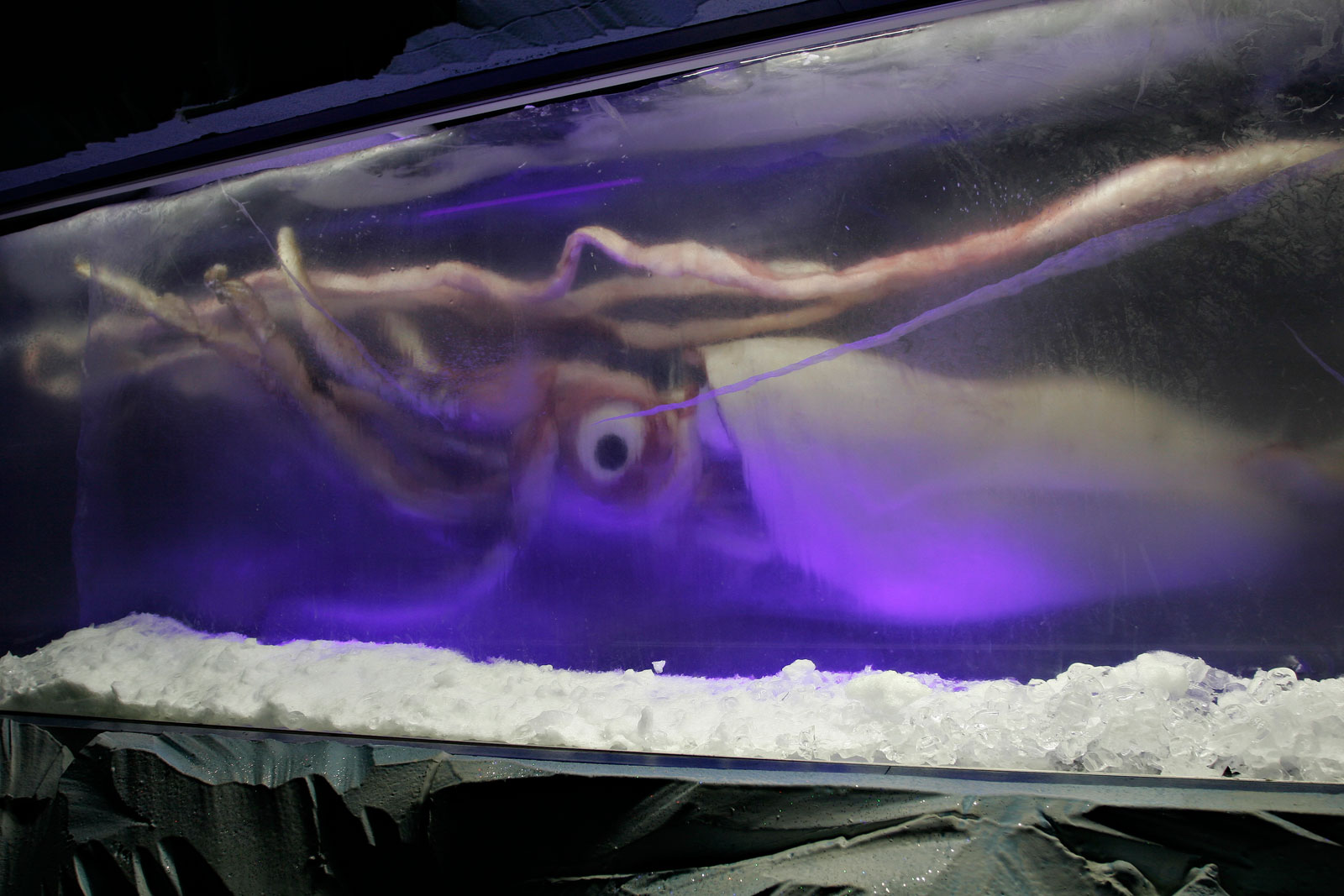Nestled inside of Portage Place mall in downtown Winnipeg is a new indoor skatepark formed from community effort, called Pitikwé.
Pitikwé, which is a Cree word meaning “come in,” came into being after the Manitoba Skateboarding Coalition brought community members together to create an indoor space built on safety and inclusivity for the city’s skateboarding community.
Graham Constant, executive director of Pitikwé and president of the Manitoba Skateboarding Coalition, said the park’s Oct. 27 grand opening was a massive success.
“Our capacity is only at 100, and we were at capacity right away,” Constant said, adding that there was a lineup of people eager to access the park. Staff had to cycle groups of attendees out every hour to make sure everyone got a chance to experience Pitikwé.
“It shows that the community really wanted this and really needs this,” Constant said.
Accessibility was on the minds of everyone involved in Pitikwé’s creation. Constant said having a central location that community members and riders alike could easily get to was an important consideration, and Portage Place met that need.
A skatepark inside a mall might seem odd to some, but Constant said it comes back to the understanding that the community “really wanted this.”
To further support accessibility, the site also has skateboards and safety equipment to loan out to skaters who might not have any, free of charge.
Entry is $5 for those under 25 and $10 for those aged 25 and older. There will also be a season pass option allowing skaters to pay a one-time fee to skate all winter. Constant added that volunteers at the site get in free.
“Anybody can come here and we’ll do our best to accommodate,” he said.
To make the park a safe and inclusive space for all, the Pitikwé team took care to thoroughly develop the park’s code of conduct, which is displayed at the front of the site. Security is also present at the front of the park for every session, and trained staff and volunteers are available to provide assistance to park attendees.
Constant said there has been some concern from folks about the location of the skatepark and that the downtown area is known for being “fairly dangerous,” but he feels it depends on your opinion.
While he understands concerns about the downtown area at night, as a resident of downtown Winnipeg for over seven years, Constant believes staying safe is all about self and situational awareness.
“I’ve heard people saying, ‘How long until somebody gets stabbed here?’” he said. “You guys don’t say that when you’re attending a hockey game across the street.”
“It’s just people’s mentalities that have to change, their perspectives have to change, because downtown isn’t dangerous to me,” he said. “It’s got its own scene, you’ve just got to get used to it.”
Since the creation of the skatepark, Constant said people have come up to him to express their gratitude and excitement. He emphasized the large role the community had in the forming of Pitikwé.
“It’s by the community for the community,” he said.
Alongside open skate sessions, Pitikwé offers sessions specifically for women and/or trans skaters, BMX and scooter riders, youth and adults.
The variety doesn’t end there, however. Constant also hopes to offer media production programming through Pitikwé where he can teach youth how to use cameras and edit footage.
“That’s how I got into filmmaking, and now I’m a business owner and I’ve been doing that for the past five years,” Constant explained.
“I never would’ve thought that picking up a camera and filming my friends and editing montages together would translate to a real job.”
For Constant, an important focus of Pitikwé is to try to connect with Indigenous, inner city and at-risk youth and “show them what skateboarding can do for them.”
Sessions at Pitikwé Skatepark can be booked online through its website, https://pitikweskatepark.com/.




